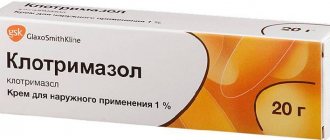Erectile dysfunction in men or impotence is manifested by the inability to have sexual intercourse due to poor filling of the penis with blood. A symptom of erectile dysfunction is a condition when, for various reasons, the penis cannot achieve the necessary elasticity for insertion into the partner’s genital tract, or its tension stops earlier, which does not allow successful completion of sexual intercourse. Over 150 million men in the world suffer from impaired ability to have sexual intercourse due to decreased erection; the complete inability to perform sexual intercourse is called impotence. In men over 40 years of age, the problem of erectile dysfunction and impotence occurs several times more often than in younger people and affects the quality of life. Treatment of impotence can be successful using modern methods of vascular restoration and correction of psychological disorders and the man’s lifestyle. It is important to understand that vascular lesions are not the most common cause of impotence, while more than 80% of cases of sexual impotence are explained by psychological problems. Risk factors are obesity, diabetes mellitus and chronic intoxication with alcohol and nicotine. Men often gain knowledge about impotence from articles in tabloid magazines, being embarrassed to seek help in a timely manner, take care of their health and get rid of bad habits.
Organ function is normal
The male penis is the main organ of the reproductive system.
This soft tissue anatomical structure combines the functions of the urinary and reproductive systems. During coitus, the corpus cavernosum fills with blood, resulting in enlargement and straightening of the organ. At the bottom of the penis is the corpus spongiosum, through which the urethra passes. The urethra of the penis is necessary for the release of urine and ejaculation during sexual intercourse. The process of penile enlargement (erection) involves several anatomical components, including the nervous system, smooth muscle, blood vessels, and endocrine factors. Electrical impulses coming from the human brain promote the release of regulatory substances that affect the tone of the blood vessels of the penis. As the cavernous bodies are filled with arterial blood, the intensity of the venous outflow decreases, as a result of which an erection is maintained for a long time. After ejaculation, the parasympathetic components of the nervous system restore venous blood flow and eliminate erection.
The main stimulus for blood supply to the penis is nitric oxide, produced by endothelial cells. This regulatory substance triggers a chain reaction of molecular changes leading to relaxation of smooth muscles and dilation of blood vessels. In this regard, most drugs needed to restore erection enhance the effect of nitric oxide or stimulate the release of this chemical compound. This treatment does not help patients with severe structural pathologies associated with blood vessels, muscles and other components.
Physical reasons
In most cases, erectile dysfunction is a polyetiological condition. The primary disease may be organic or functional in nature, but often the pathology is aggravated by psychological factors. If the cause of impotence is not immediately identified by symptoms and special examinations, doctors need to assess the condition of several systems at once that can have a negative impact on the male reproductive organs.
The main organic causes of the disease
- Pathologies of the cardiovascular system that cause insufficient blood supply to the penis. This could be myocardial infarction, vascular inflammation, atherosclerosis or trauma. Anomalies in the structure of the vessels of the pelvic cavity should also be taken into account.
- Disruption of the nervous system. Impotence can be simultaneously caused by a disorder of the central and peripheral nervous systems, since the activity of the penis is controlled by different structures. Usually we are talking about a stroke, epilepsy, spinal cord injury or multiple sclerosis.
- Pathologies of the respiratory system, including chronic obstructive pulmonary disease and breath holding during sleep.
- Systemic disorders that simultaneously disrupt the functioning of several regulatory components. In this case, the cause of impotence may be liver damage, metabolic disorder or soft tissue disease.
- Diseases of the body's regulatory systems. Thus, dysfunction of the thyroid gland, which controls the functioning of most organs and systems, can lead to impotence.
- Injuries resulting from surgery. Patients who have undergone pelvic surgery are at risk.
The organic etiology of erectile dysfunction is not always eliminated with the help of medications. Irreversible dysfunction of the penis is most often caused by pathology of the nervous system.
When to see a doctor
If 25% of all intimate contacts ended unsuccessfully (you were unable to begin or complete sexual intercourse), perhaps we are talking about impotence. Also, if you find one or more of the above symptoms of erectile dysfunction, it makes sense to seek help from a specialist. The optimal treatment regimen will be prescribed, which is the most suitable and comfortable for the patient. During your consultation with a urologist, you will learn about the treatment of impotence in general terms. After making an accurate diagnosis, the doctor will tell you how to treat impotence in more detail.
Psychogenic etiology
Sexual activity in many aspects relies on reflexes of the nervous system, which a person has little or no conscious control over, but we should not forget about the influence of the higher structures of the brain on the functioning of the genital organs. Even in the absence of any structural abnormalities that prevent blood flow to the penis, a man may suffer from periodic or constant impotence.
Possible reasons
- Clinical depression is a pathology of higher nervous activity, manifested by a persistent decrease in mood. Episodes of major depressive disorder often affect organ function and libido.
- Anxiety disorders characterized by panic attacks, fear and social discomfort. It is hypothesized that anxiety may disrupt the balance of activity between the sympathetic and parasympathetic components of the nervous system.
- Post-traumatic mental disorder. The cause of such an illness can be physical violence, the death of a loved one, or another tragic incident. The disorder manifests itself with anxiety, depression and psychosomatic symptoms.
We should not forget that many medications in psychiatric practice have a negative effect on potency and libido in men. First of all, these are antidepressants, antipsychotics and some anxiolytics. If erectile dysfunction occurs during treatment for a mental disorder, the patient should first consult with their doctor.
Preparing to visit the doctor
Before visiting a specialist, you need to make a list of the medications you took (if any). Also be prepared for the fact that the doctor will need to clarify several important questions, for example:
- hereditary predisposition - did anyone in your family have problems with childbearing, etc.;
- have you recently had any illness;
- Do you suffer from chronic illnesses?
- how long ago did problems with potency begin?
- do you have phobias related to sex, etc.
Before treating impotence, the urologist will need to create a holistic picture of the problem. This is necessary so that the treatment is comprehensive and helps eliminate the root causes of the disease, and not just relieve the symptoms.
Risk factors
The etiological factors listed above do not always determine the development of the disease. It is necessary to take into account additional forms of predisposition to erectile dysfunction associated with a man’s lifestyle, heredity and other aspects.
Possible risk factors:
- taking certain medications. (Erection dysfunction in some cases occurs when taking antihypertensive drugs, 5-alpha reductase inhibitors and drugs for the treatment of stomach ulcers);
- chromosomal and genetic disorders affecting the development of the genitourinary system;
- diabetes mellitus and chronic cardiovascular pathologies;
- obesity and inactive lifestyle;
- smoking and frequent consumption of alcoholic beverages.
- low stress resistance, difficult working conditions;
- taking hormonal medications;
- spinal and pelvic injuries.
Taking into account risk factors helps create conditions for the prevention of impotence. Elderly men need to monitor the condition of the cardiovascular system and undergo regular urological examinations.
Additional symptoms
Since impotence is usually a complication of a primary disease, it is necessary to consider the entire symptomatic picture. Additional signs indicating the root cause of erectile dysfunction are most often associated with the functioning of the genitourinary system.
Possible symptoms:
- lack of sexual arousal (violation of libido);
- soreness of the perineum, penis or pubic area;
- discomfort during urination or ejaculation;
- dizziness, constant weakness;
- premature ejaculation;
- difficulty urinating, false urge to defecate;
- the occurrence of phobias, panic attacks;
- everyday anxiety, discomfort when communicating with women.
It is important for a specialist to immediately exclude the psychosomatic nature of the symptoms and detect a specific disease that affects the functioning of the penis. In many patients, during the examination, healthy blood flow to the penis is revealed, even in the presence of chronic diseases of the genitourinary system, so not all signs can be taken into account.
Diagnostics
Basic examinations aimed at identifying the cause of impotence are carried out by urologists and andrologists. During the initial appointment, the specialist will clarify the patient’s complaints, study anamnestic information and conduct a physical examination. Palpation of the prostate gland sometimes helps to detect organ pathology already at this stage. Also, obvious signs of cardiovascular and neurological disorders are detected during the examination. To clarify the diagnosis and select effective treatment, the specialist will need the results of instrumental and laboratory tests.
Necessary diagnostic procedures
- Duplex scanning of the penis. This ultrasound technology allows you to assess the condition of the blood vessels and cavernous tissue of the organ.
- Electromyography of the bulbocavernosus reflex - detection of neurological disorders that cause erectile dysfunction.
- The intracavernosal caverject test is a high-precision instrumental study that involves the introduction of erection stimulants into the penis, followed by visualization of the organ using ultrasound. This method allows you to exclude the psychogenic nature of impotence and detect structural pathologies.
- Blood and urine tests are laboratory tests that allow you to diagnose pathologies of various organs and systems.
- Additional visual inspection methods to look for organic abnormalities. This may be a computed tomography or magnetic resonance imaging scan. Using CT or MRI, doctors obtain three-dimensional images of anatomical structures.
If there are additional indications, psychotherapists, neurologists and psychologists are involved in the examination.
Psychological support
If the cause of the problem is not organic, i.e. The patient is absolutely healthy, but he has some kind of psychological barrier, then a psychologist or psychotherapist is involved.
This therapy is aimed at identifying a certain attitude that prevents the patient from leading a normal sex life. After this, work is carried out to eliminate all negative factors and psychological barriers, the result of which is the acquisition of self-confidence, getting rid of internal conflicts, which has a positive effect on the sexual sphere.
Drug treatment
Restoring erection with the help of drugs was developed in the second half of the 20th century. Today, the pharmaceutical market can offer patients effective drugs that affect the endocrine factors of blood supply to the penis. Such treatment can only be prescribed by a urologist or andrologist after identifying the root cause of erectile dysfunction.
Prescribed drugs
- PDE5 inhibitors that enhance the effect of nitric oxide and improve blood flow to the cavernous bodies of the penis. This is the most common group of medications, which includes Viagra and Cialis.
- Herbal medicines. According to some studies, ginseng has a beneficial effect on the functions of the male genital organs.
- Injectable drugs that relax smooth muscles. These are papaverine and alprostadil.
- Hormone replacement therapy for low testosterone levels.
Many drugs have only a temporary effect, so the main task is to eliminate the root cause of impotence. Patients also need to take into account the side effects of certain medications that affect the cardiovascular system.
Other correction methods
The modern approach to the treatment of impotence is not limited to medications. Depending on the identified etiology of the disease, the doctor may prescribe the patient a surgical intervention aimed at eliminating the anatomical defect or implanting artificial material. Vascular operations rarely lead to the restoration of erection, however, with organic damage to the arteries and veins, such treatment may be the only way out.
Modern correction methods
- Using vacuum devices to fill the penis with blood. This method of treatment only leads to a temporary improvement in erection, so pumps must be used immediately before sexual intercourse.
- Plastic and inflatable prostheses that give the penis a certain shape. During sexual intercourse, the patient can independently straighten the penis, making it possible to insert the penis into the vagina.
- Resection of blood vessels, restoration of patency of the cavernous bodies and other methods of surgical intervention.
Additional methods of treating impotence include psychotherapy. Relieving depression and anxiety with the help of psychotropic drugs eliminates a common root cause of the disease, and subsequent psychological correction has a beneficial effect on the patient's social interactions.
Carrying out the operation
Surgery is a last resort measure that is used in cases where more gentle methods of therapy have proven ineffective.
The following types of operations are carried out:
- Implant installation (endophalloprosthesis).
- Revascularization of the penis. Involves surgery to form an artificial connection between a vein and an artery (used for arteriogenic erectile dysfunction).
- Surgery for venous insufficiency of the penis. During the operation, pathological areas of blood vessels are restored.
Prognosis and prevention
In most cases, the prognosis is favorable. New treatment methods can eliminate the root cause of impotence in 60% of men. At the same time, cardiovascular and neurological factors affecting the functioning of the penis can lead to more severe disorders. Psychogenic erectile dysfunction is best treated.
Prevention methods:
- undergoing examination by a urologist or andrologist at least once a year;
- regular examination of the cardiovascular, nervous and endocrine systems if there are appropriate indications;
- improving lifestyle: reducing body weight, regular physical activity, giving up fatty foods, alcohol and cigarettes;
- treatment of inflammatory diseases of the genitourinary system;
- psychotherapeutic treatment of anxiety, depression and other emotional disorders;
- regular sex life.
Thus, impotence is a polyetiological condition. Erectile dysfunction in young men is accompanied by a significant deterioration in the quality of life, but modern methods of therapy can quickly and reliably eliminate the root cause of the pathology.
What tests should be taken if you suspect erectile dysfunction?
Before drawing up a treatment plan for impotence, you must consult with an andrologist and undergo a comprehensive examination, which includes not only instrumental, but also laboratory techniques. The latter include:
- determination of the level of sex hormones in the blood;
- determination of sugar level;
- determination of total cholesterol levels;
- determination of triglyceride levels;
- determination of HDL (high-density lipoprotein) and LDL (low-density lipoprotein) levels.
If necessary, the doctor may prescribe other tests that will help in planning treatment for impotence.
Prevention
In order to prevent the development of erectile dysfunction or reduce the likelihood of relapse after treatment, you must adhere to the following recommendations:
- reduce body weight (if it is excess);
- to refuse from bad habits;
- maintain sufficient physical activity;
- regularly monitor blood sugar and lipid levels;
- have an active sex life.
These preventive measures will not only reduce the risk of developing erectile dysfunction, but also prevent many other dangerous diseases.






![Table 1. Comparison of the results of treatment with Tribestan for men with oligoasthenozoospermia [7] with mod.](https://ms-pi.ru/wp-content/uploads/tablica-1-sravnenie-rezultatov-lecheniya-tribestanom-muzhchin-s-oligoastenozoospermiej-7-330x140.jpg)